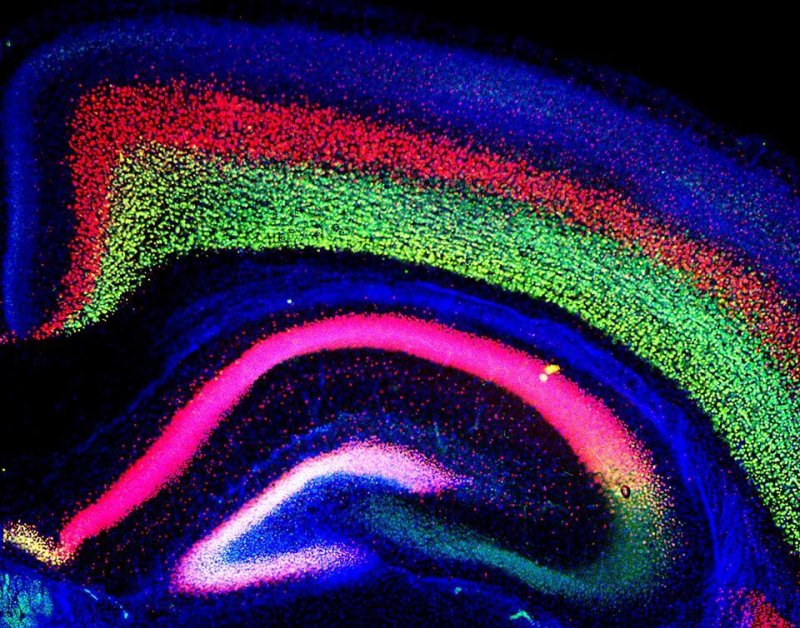The Sanger Institute Mouse Genetics Project is part of the international effort to discover the function of every gene in the mouse. Whilst the Sanger Institute has expertise in mouse genetics, the team reached out to other specialists when it came to studying the effects genes have on different organs.
…
The team found 198 genes which caused abnormalities in the mouse brain[1]. The vast majority had not previously been associated with brain development. Only 17 per cent of those are currently known to have a similar effect in humans. This leaves a list of 160 genes which caused some form of brain abnormality in the mice, and could potentially affect humans.
“While not every gene will have the same effect in humans, three of the genes which were unknown in humans when we discovered them have since been found to affect people too – Kptn, Donson and Aff3. This shows us that this list of genes provide a fantastic starting point for further studies,” says [researcher Valerie Vancollie].
…
The team have shown that their findings are relevant to people and can give insights into neurodevelopmental and psychiatric disorders. Their findings could also help diagnose rare genetic conditions.
Read full, original post: The biology of the brain































